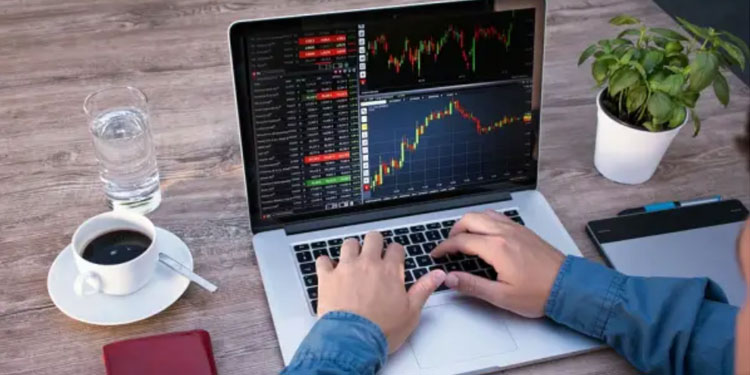While trading has become a source of income for some self-employed people recently, you can’t invest much without the right platform. We’ll share some tips on how to choose one.
A Grade Trade
There are many reliable platforms where you can create your own trading account. But how to make sure that you’re in the right place which you can trust with your time, money and personal info? Well, there are a few signs that can tell if a platform’s worth it.
- Visuals
If a broker is serious about their services, they must have a modern website. A sleek interface, easy navigation, intuitive layout, no visual clutter, laconic feature catalog, and so forth.
At this point it’s just a facade. But you can learn a lot about a broker by judging how they approach their “face” on the internet. It can never be ugly, old and unappealing.
- Ease of Use
You should be able to access the broker from various platforms (including mobile). Check which trading tools, terminals, bots or advisors they apply. Learn which payment methods are available and if depositing money online is secure.
A good idea is to start a demo account and see how things go from there. Trying the broker’s arsenal of tools will let you experience trading first-hand. Besides, don’t forget to check how responsive the website/app is: no lags should occur when you close or open a position.
- Client Support
Before depositing funds, contact their client support. Check how quickly they react to a request, if they retain a polite tone of voice and how willing they are to consult/help you.
- License
Probably, this is the most important detail. Fraudulent, suspicious brokers never seem to have a license. This is why you won’t spot any info about it on their front page. Or, in some cases, license-related information is hidden far-far away, behind a layer of tabs.
But if the platform can boast of a license, that’s definitely a positive sign. It must be issued by a government body only: FINMA, CySEC, Securities and Exchange Commission, and so forth.
Apart from a regulatory body, a broker should also provide the license number. To check the validity of the license, you can type in the Google search body’s name + the license number, like CySEC 301/12.
If the license is legit, you’ll find the full info on the broker on the regulatory body’s website. Besides, you can contact it directly to learn if the broker is authorized to provide their services.
- Expenses
You need to know when and how much you’ll pay the broker from your transactions. Learn everything about the charges they put on cryptocurrency, stock shares, currency exchange, Contracts for Difference, and so forth.
The problem is, different brokers may have different policies. And while some have generously small commissions on CFDs where you pay just the spread, others may charge extra and offer standard tools like Stop for an extra dollar.
- Deposit
Withdrawing funds should be as easy as depositing them. Scrutinize the withdrawal policy and consult the support if necessary.
- Reputation
For how long has your potential broker been in business? Is their record clean? It wouldn’t hurt to search for the reviews left by other traders who already worked with the platform in question.
Better yet, check if the brokerage firm is on the SIPC list. If the company we’re talking about is located in the US, you can try looking it up in the FINRA’s database.
Don’t Go Broke with Your Broker
These are the key factors to consider before you start your trading journey. Closely examine your future broker, study their customer policy and search for genuine reviews. Money doesn’t like haste decisions.
